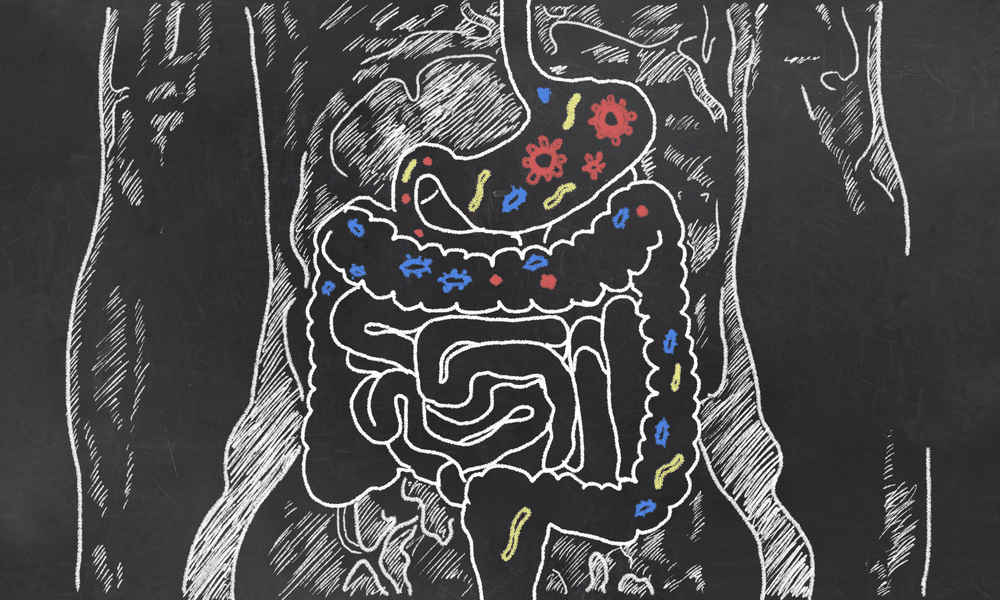Having bad digestive health can ruin a person’s life. Not only can it cause extreme pain, but it can also disrupt day-to-day activity. For this reason, taking care of your gut health should be a priority. Here at Knox Wellness Experience in Knoxville, TN, we offer a comprehensive screening and treatment program that allows you to find out more about your digestion and get rid of any issues.
There are many ways to improve the health of your gut, and while some of them require effort and medical treatment, others are simple lifestyle changes. For instance, you could eat gut-friendly foods, cut certain substances from your diet, maintain good oral hygiene, and exercise on a regular basis. If you’re still experiencing problems, your doctor can recommend supplements such as probiotics, antimicrobials, and enzymes.
How to Best Improve Gut Health
A wide variety of issues can contribute to problems with the gut. For instance, patients might suffer from food intolerance, constipation, or a leaky gut due to a faulty microbiome, a lack of enzymes, or simply because they are not eating a healthy diet.
When you come to the clinic, we will run some tests to see what the issue is. Then, we can suggest a treatment plan that addresses your needs. It might include improving your nutrient intake, changing your oral hygiene, taking some supplements, and cutting certain foods out of your life.
Change Your Diet
One of the best things you can do for your gut is to eat healthy foods that support digestion. The best options include nuts, veggies, beans, and whole grains. These foods contain fiber, which is a type of carbohydrate that the body can’t digest. Fiber bulks up the intestines and helps waste move through your body. What’s more, nuts and whole grains have been shown to increase the number of good bacteria in your gut.
Adding spices like ginger, turmeric, or garlic to your meals can also have a positive effect, since these substances can kill off bad bacteria and therefore help you remain healthy. Similarly, dark chocolate is a great source of polyphenols, plant-based molecules that your beneficial gut bacteria can use as fuel. Experts recommend one to two ounces of organic dark chocolate per day. Alternatively, you could eat onions, almonds, broccoli, or blueberries.
Take a Probiotic Supplement
Did you know that you have around 100 trillion friendly bacteria in your gut? When all is going well, you barely even notice that they are there, but when they are missing due to illness or a pathogen, you might develop an upset stomach, increased fatigue, food intolerances, skin irritations, or food cravings. Fortunately, there are substances called probiotics that can help restore the beneficial bacteria in your gut.
These supplements contain live cultures of certain kinds of microbes, and they are usually taken orally. For most patients, taking one pill or capsule a day is safe, and if you frequently experience problems with your digestive tract, it is highly recommended. If you have a problem with your immune system or a serious medical condition, you should speak to your doctor before taking probiotics.
Eat Probiotic Foods Every Day
While taking a supplement is the simplest way of restoring your gut’s microbiome, it isn’t the only option. Many people prefer to try probiotic foods and beverages first. Nowadays, you can find several options in almost every supermarket or specialty food store, so you shouldn’t have trouble finding suitable foods. Some great ones include yogurt, pickles, and sauerkraut.
It’s interesting to note that Asian cuisines use probiotic foods and beverages much more frequently than Western cuisines. If you’ve never tried kimchi, natto, or miso, you should look up some recipes and give these foods a go. You might find them both beneficial and delicious. People who prefer to drink their probiotics could try Kombucha or kefir.
Stay on Top of Your Oral Hygiene
At first glance, there doesn’t seem to be a link between gut health and oral hygiene. But since the entire digestive tract is connected, bad bacteria in your mouth can affect your stomach and your guts. Studies in Sweden and at Cornell University have shown that there is a link between bad oral hygiene and problems with the digestive system.
To prevent any issues, you should brush your teeth twice a day for at least two minutes and floss once a day. Additionally, you could consider using mouthwash during the day. Every year, you should visit your dentist to make sure there aren’t any issues and to get your teeth cleaned by the hygienist.
Limit Certain Foods
Certain types of foods negatively affect the way your digestive system works. In particular, artificial sweeteners can prevent the healthy function of the microbiome and the body’s use of insulin. Similarly, consuming too much sugar can lead to leaky gut syndrome because it kills off the good bacteria in the gut.
If you suffer from constipation, you should pay special attention to the foods you eat. Alcohol, dishes containing a lot of gluten, red meat, milk and dairy products, and processed grains might not be the best options for you. On the other hand, people who have an overactive gut shouldn’t consume fiber-rich foods, fatty foods, too many fruits and vegetables, and coffee or tea.
Get Plenty of Exercise
Exercise can significantly improve the health of your digestive tract. In addition to “getting things moving”, moderate levels of exercise stimulate blood flow and wound healing, so they reduce inflammation in your body. If your system is threatened by an infection, going for a daily walk or spending some time at the gym could prevent the problem from getting worse.
Additionally, the fact that exercise raises the body’s core temperature can have a positive effect on your gut’s microbiome because the beneficial bacteria come into closer contact with the immune cells in the gut’s mucus. Scientists are still researching the effects of exercise on digestion, but the fact remains that regular physical activity has a positive effect on the gut.
Take Herbal Antimicrobials
Antimicrobials are herbs that help your body to get rid of pathogens. They are designed to support the natural immune process and possess either anti-fungal, anti-bacterial, or anti-parasitic properties. For example, Echinacea contains a volatile oil that can destroy staphylococcus bacteria. Many herbal antimicrobials can also counteract problems with immune function.
At the clinic, your specialist can test your gut’s function and determine what the problem is. Then, they can prescribe an antimicrobial substance that counteracts the infection you’re suffering from.
Take Enzymes
Digestive enzymes are proteins that help your body to break down the food you eat. They separate carbohydrates, fats, and proteins into smaller molecules that can be absorbed more easily by the body. If you don’t have enough enzymes, you are more likely to suffer from digestive problems and food intolerances. Before deciding on a treatment plan, we will test for this issue and let you know whether you should take an enzyme supplement.
How Do I Know I Need to See a Specialist?
Everyone’s digestive system is different, and occasional constipation, diarrhea, or even cramping is normal. While some people have several bowel movements a day, others only have one every three days. But if you lead a healthy lifestyle that includes a nutrient-rich diet, plenty of water and exercise, good oral hygiene, and probiotic foods and you still experience significant issues, you should see your local specialist.
You might have an issue with the microbiome in your gut, or your digestive trouble could have another cause such as a lack of enzymes. Since this type of problem is so disruptive and can indicate a serious disease, you shouldn’t wait too long before contacting the clinic. In most cases, we can run some tests and treat patients in-house, but sometimes, we refer them to hospitals or specialists.
Get on Top of Your Digestive Health Now
Maintaining a healthy digestive tract is crucial because it prevents patients from experiencing significant pain and disruption to their daily lives. There are various ways to improve gut health, and they include changing your diet, taking probiotics, limiting unhealthy foods, exercising regularly, maintaining good oral hygiene, and taking herbal antimicrobials or enzymes.
While most people can regulate their digestive health on their own, some experience problems even after making lifestyle changes. If you can’t get rid of your gut health problems on your own, you shouldn’t hesitate to speak to your local experts, who can run some tests to find out what the issue is. Call us now at Knox Wellness Experience in Knoxville, TN to book your initial consultation with our digestive specialists.












